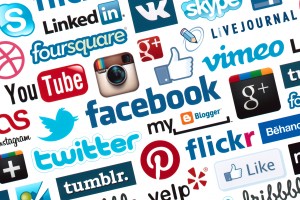As soon as I started publishing mysteries in the mid-nineties, publicists and my editors urged me to go to all the mystery conferences I could manage, especially Bouchercon. That’s the biggest one of them all and attracts writers and fans from around the world.
I went, year after year, to half a dozen different conferences around the country–and even one at Oxford University. What I discovered, among other things, was that many were a waste of time and Bouchercon was in some ways highly over-rated.
I enjoyed meeting fans there and running into authors I admired. But I had more time with Walter Mosley, for example, when our paths crossed in Texas on separate book tours than was possible at Bouchercon. I had dinner with him and a group, heard him do a killer reading, and then we got together for drinks later and talked for a few hours about the logistics of developing a series. It felt like a mini-workshop/retreat.
He’s been gracious and charming wherever I’ve met him, but at Bouchercon, I got the sense with other famous authors that the motor was running and they were waiting for someone more important than me to come along while we chatted. And there was always that sense of clamor wherever you went.
For fans, Bouchercon can be a dream, a feast: so many authors, so little time! But for midlist authors who’ll admit it off the record (and many of them have to me), the conference is pretty much the same thing over and over. I’ve listened to some authors tell the identical anecdotes on more than one panel and the panels themselves, well…. It’s great if you haven’t heard it all before, but not so great if you’re a veteran.
Authors supposedly get terrific exposure at Bouchercon. I don’t believe that’s always true. The famous writers are the ones who get exposure. The rest of us can get eclipsed, exhausted, and wonder why we bothered. I once chaired a standing room only star-studded panel with over 450 people there, and the recording was the best seller of the entire conference. Did it budge my books sales at the conference book room or afterwards or even that following year? Barely.
I had spent $750 for a full page program ad, plus another $1000 on the hotel, meals, and air fare. For that money, I could have had a lovely weekend vacation with my spouse somewhere totally stress-free. Or gone to more than one smaller mystery conference.
That doesn’t mean writers should avoid Bouchercon. But if you’re a mystery author, and especially if you’re a newbie, think carefully about your goals, the reality of attaining them, and what your budget is. Bouchercon can be enjoyable if you can do it inexpensively (like if it’s nearby)–and if you’re not averse to massive crowds. But it’s wise to consider smaller conferences like Magna cum Murder or Left Coast Crime where you might do better, spend less, and have more fun. The smaller conferences are more affordable, less crowded and overwhelming, your fans have more access to you, you can network more readily with other authors including the stars–and the entire event is less frantic and stressful, especially if you’re a writer who’s introverted. And so many of us are…..
Lev Raphael is the author of The Edith Wharton Murders and 24 other books in genres from memoir to horror.


 Lev Raphael is the author of 25 books in genres from memoir to mystery which you can find on
Lev Raphael is the author of 25 books in genres from memoir to mystery which you can find on 
